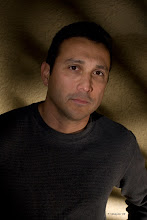But often writers miss, and readers sense it. They don't believe you, they shake their heads, put the book put down. You can be the most graceful prose stylist, the most energetic storyteller, but if your tale doesn't ring true, forget about it. A part of the reader will withdraw. And one major reason why writers fail to convince is that they simply don't know what they're talking about, or don't know enough.
The primary challenge for writers, before the hard work of mastering technique and language, I think, is finding a true subject.
So, what is a true subject? First, the idea has to excite you. It's got be an idea or plot line to which you're emotionally drawn. If you aren't excited about it, chances are readers won't be either. It helps if it's a storyline that you haven't quite heard before, or one in which there is some event you've yet to encounter, either in narrative or real life. Something that strikes you as original, perhaps. (And on this subject of originality -- strive for it, but don't lose sleep, all the stories have been told; especially if you're a genre writer. We are merely writing variations.)
Most importantly, a true subject must be one that you identify deeply with. It must be one that reflects something you recognize about a place, or about people. A subject or plot line true to your experience, that accurately reflects life as you know it, may inspire a story only you can tell.
Here's Hemingway on writing: "Write when there is something you know, and not before."
When you have a compelling story idea that makes you want to stop somebody and say, "Hey, listen to this," that makes you want to find out what happens next, you're on to something. You may have discovered a true story idea.
The proof will come in the telling. You'll find out if it's a true story idea, when the writing begins. Still interested 20 pages in? One hundred pages in? If yes, keep going. Tell us that story.



No comments:
Post a Comment